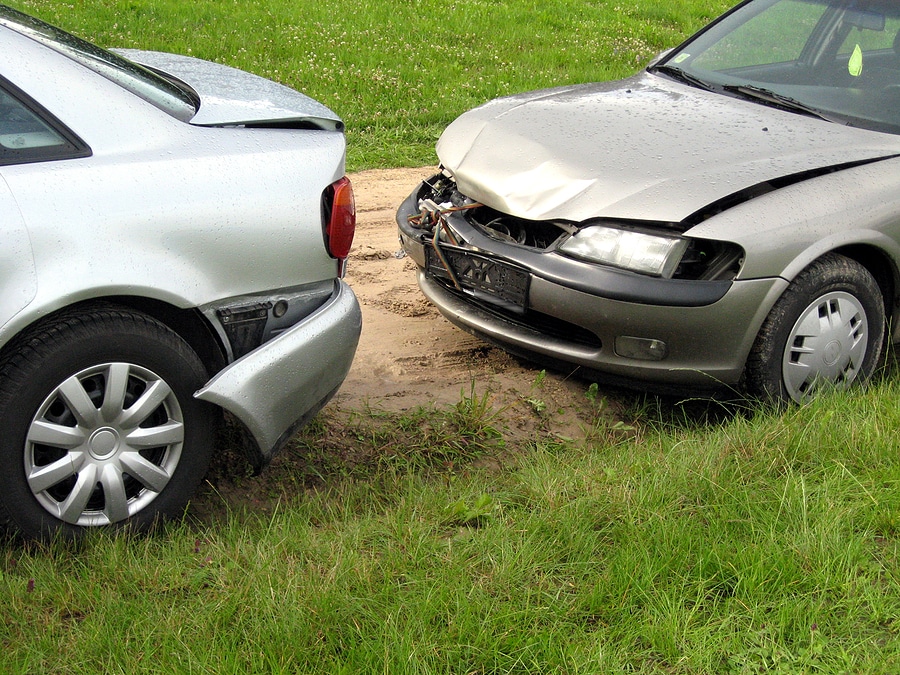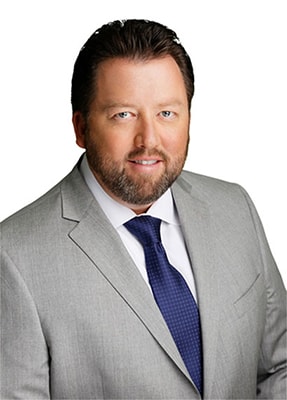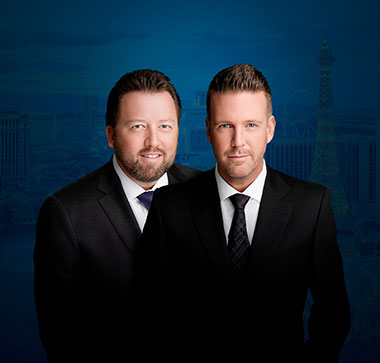Most car accidents happen on public roads, but not all do. Sometimes, a crash occurs on private property, including on private roads and driveways, in parking lots and garages, and anywhere else cars might travel. In those cases, injured car accident victims may find that their rights to compensation differ from the rights of someone who got hurt in a wreck on a public road. Here is an overview of the potential issues and how an experienced Vegas car accident lawyer can help sort them out.
Common Scenarios

- Collisions on private (often dirt or gravel) roads or driveways that are too narrow to accommodate two-way traffic safely
- Head-on and rear-end crashes in busy shopping center parking lots or when rounding blind corners in parking garages.
- Accidents in makeshift or temporary parking areas, such as on fields or in front yards
- Crashes on streets that appear public but have management by homeowners’ associations or other private entities.
This is just a sampling of the ways that accidents might happen on private property, of course. No matter how a crash occurs on private property, victims may suffer serious injuries that leave them in significant physical, emotional, and financial pain.
Slow-Speed Crashes Can Still Cause Serious Injuries
In many cases, car accidents on private property happen at slower speeds. Parking lots, garages, and private cul-de-sacs often have slower speed limits, and drivers have to reduce their speed to navigate these private properties. Never assume that your car accident claim isn’t serious because the accident did not happen at higher speeds. Slow-speed crashes can still result in serious and costly injuries and losses. Some common injuries from such accidents include:
- Whiplash
- Dislocations
- Soft tissue injuries in your joints
- Fractures
- Concussions
Some of these injuries might not be immediately obvious. You might feel sore, stiff, or disoriented, and write it off as something that will resolve itself. However, during the next hours or days, you might notice increasing pain and other symptoms of injuries. As soon as you notice anything wrong, seek a medical evaluation. You want a diagnosis as close to the accident as possible, both for your health and legal rights.
What Makes Private Property Car Accidents Different?
In many ways, a car accident on private property resembles a car accident on any public road. Vehicles get damaged, drivers and passengers get hurt, and everyone involved faces unexpected expenses and difficulties. In other ways, however, a car accident on private property differs significantly from a crash on a public highway or byway. Here are some of the key potential differences.
Property Owner Liability
Generally speaking, property owners owe a duty of care to anyone who visits their properties. That duty broadly requires property owners to take sensible steps to keep visitors safe from harm or, at a bare minimum, not to put visitors in danger unreasonably. The duty extends not just to visitors who walk onto private property but also to people who drive or ride onto someone’s private premises. If a preventable, dangerous condition on property results in or contributes to a car accident, the property owner can potentially have a legal liability to crash victims. The scope and nature of that liability might differ dramatically from the potential liability that a public entity might face in the event of a crash on a public road. For example, a local government will generally not have legal liability for an accident caused by a speeding driver, even if the police know a particular stretch of public road sees a lot of speeding. However, a private property owner might owe damages to victims of a speeding crash on a private road if the property owner knew about the speeding and failed to take reasonable steps to prevent it. Similarly, local government entities frequently benefit from laws that cap their liability and impose tight deadlines on filing claims against them. Private property owners do not have the benefit of such laws. That means that victims of private property car accidents may have more options and greater flexibility in seeking compensation for their injuries and losses than if they had been in a crash on a public road.
Different Rules of the Road
Car accidents on private property can also differ from crashes on public roads in the rules that apply to property owners’ and drivers’ decisions and behaviors. Consider parking lots and garages, for example. Have you noticed how tight their corners are and how little room they leave drivers to maneuver? That is because public road engineering standards do not necessarily apply to parking lots, driveways, and other areas vehicles might travel on private land. Private property owners may face liability for their decisions, but they also often enjoy more flexibility in designing and building reasonably safe facilities for vehicle traffic. Likewise, to some extent, private property owners can dictate the rules of the road to their visitors. They can post and enforce a 15 mile per hour speed limit, for example, even if the limit on a comparable public way is 35 miles per hour. They can require permits, special licenses, or liability waivers to drive on their roads or to park on their fields. Compliance with the rules of private roads can determine who might owe compensation for injuries in a car accident on private property.
How a Skilled Car Accident Attorney Can Help You
The pain, suffering, and expense of a car accident don’t vary much between accidents on public roads and private land. After a crash, victims and their families need sound, experienced legal advice to help them make decisions and protect their right to compensation. A skilled car accident attorney can help victims secure payment for their injuries and losses, no matter who might face liability for them. Every case differs, of course, but an attorney can:
- Investigate the circumstances of an accident on private land, including any special rules of conduct that might have applied and any steps the property owner should have taken to keep drivers and passengers safe.
- Evaluate the availability of insurance coverage that may pay for victims’ damages.
- Explain victims’ options and answer their questions about who may owe them compensation.
- Prepare and file lawsuits and insurance claims seeking payment for victims’ injuries and losses.
- Negotiate settlements when possible to resolve victims’ claims.
- Go to trial to prove a car accident claim to a judge and jury.
- Collect any monies due to victims through a settlement, judgment, or jury award.
Attorneys cannot guarantee the financial outcome of any car accident claim, no matter where the crash happened. They can, however, give victims a stronger chance of securing fair compensation against a private property owner or other parties at fault for a car accident. If you or a loved one suffered injuries in a car accident on private property, contact an experienced car accident attorney today to learn about your rights and options.
What to Do After a Car Accident on Private Property

If you suffer injuries in a crash on private property, you should take certain steps to protect your rights after the accident. Always report the accident to the police, even if you did not call 911 at the time. Police officers should file an official report with your side of the story once you report the matter. Make sure you receive the medical care you need to diagnose and begin treating your injuries. Medical records showing your injuries serve as evidence to the insurance companies that you suffered harm. Insurance companies might try to challenge the severity of your injuries, so always keep up with all treatment appointments to demonstrate that you are taking your injuries seriously. Aside from medical treatment, the most important thing you can do to protect your rights is to contact a car accident lawyer. If you are located in Reno, a Reno car accident lawyer can assess what happened, including whether the accident took place on public or private property. From there, they can devise a strategy to seek the full compensation you need. Compensation will vary from case to case, but it might include:
- Past and future medical expenses
- Past and future lost income
- Pain and suffering
Too many people discount their losses following a car accident, especially if the collision happened in a parking lot or at a slow speed. A car accident lawyer knows how serious these accidents can be and can seek compensation from companies, homeowner’s associations, and other entities for you. Reach out for legal help from a car accident law firm near you as soon as possible.

